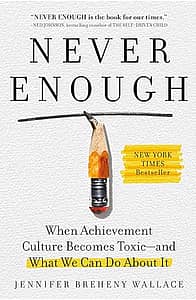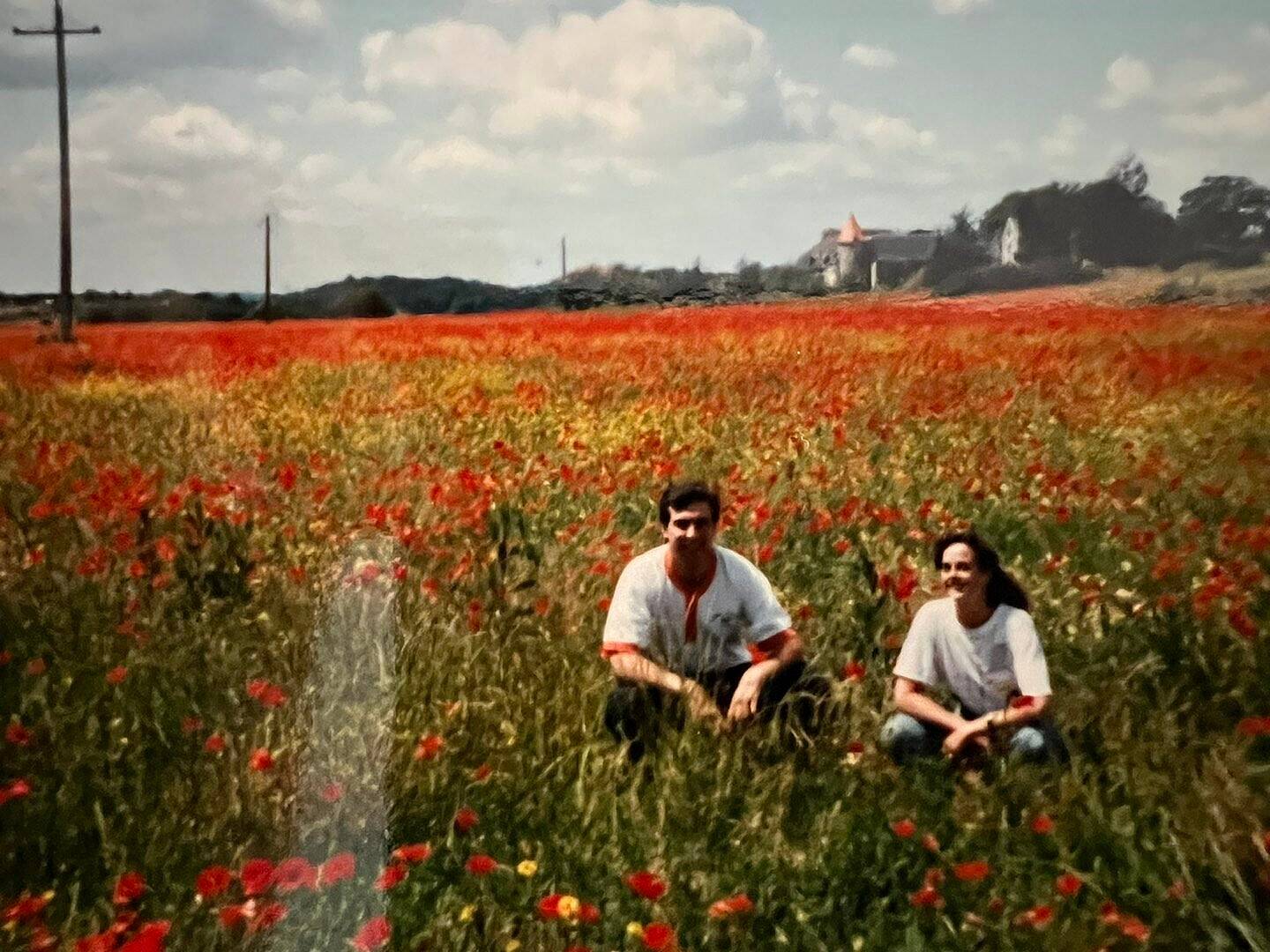Photo: Don and Sarah enjoying Normandy, France’s naturally blooming gardens of poppies, 1989.
What Cultivate Your Garden Means to Me: Nurturing our own gifts to create beauty in the world
It’s true that I’m a gardener. It’s also true that I am a francophile. But when I think about my husband Don’s kick-off of our team’s annual theme this year, Cultivate Your Garden, I didn’t immediately think about how effectively nurturing my sequence of blooms in the face of climate change disruptions to growth patterns in the northeast is a metaphor for some deeper meaning (though I am sure it is!). And because an analysis of Voltaire’s exploration of metaphysical optimism in his satirical novel Candide that ends with the famous line, Il faut cultiver notre jardin, the inspiration for our annual theme, will certainly put you to sleep, I’ll spare you (I can hear you sighing in relief – me, too!).
I’d rather hear the words of my father that rattle around my head, as they usually do when I reflect on the values that have come to drive and define me and that orient the work we do with students and families.
“Focus on yourself,” he’d say when I found myself distressed by the multiple, natural challenges of growing up. I’ll admit that I found this oft-repeated lesson confusing, particularly coming from my dad who, as a clergyman, continuously reinforced the value of selflessness. Focus on myself? Wait. You’re always telling me, “think of others” and “don’t be selfish.” It took me a while to reconcile these seemingly contradictory messages of my youth, something that I think our theme, cultivate your garden, does beautifully.
As I grew into adulthood and eventually entered the field of developmental and counseling psychology, “focus on yourself” came into, well, sharper focus for me. It seems logical that the self-esteem movement of late last century and the modern importance we place on self care and positive psychology should have enhanced the cultivation of our own metaphorical gardens, the nurturing of our own strengths, resulting in our healthy growth and happiness. But the heavy emphasis on self-focus has actually been correlated with a sharp increase in declining mental health and well-being in the U.S., with our children, adolescents, and young adults taking the brunt of this ongoing, harmful trend.
Candide returned home after galloping around the world, confronting terrifying natural disasters and mankind’s evil while on his search for fulfillment, happiness, and beauty somewhere out there in the big, wide world, only to find that a life of meaning and beauty rests within the self, within our own garden. But I’ve just shared with you that this self-focus, the thing my dad used to tell me to do when I was really struggling, isn’t the key to health, happiness, or beauty. So if self-focus doesn’t produce better outcomes of well-being, Candide’s declaration, cultiver votre jardin, can’t be an endorsement of the self-care, self-esteem, positive psychology movements, right?
In the past year, I’ve had the privilege of working with Jennie Wallace, author of Never Enough: When Achievement Culture Becomes Toxic and What We Can Do About It and founder of the Mattering Movement, a resource for schools and parents. Jennie and I have spoken together at national conferences, examining the national youth mental health crisis through her extensive research and a contemporary application of a relatively older paradigm of healthy human development (the latter is where I come in). Jennie turns Mattering, adapted by psychologist Gordon Flett (1991) from even older models of healthy human development, into a timely, effective framing of the current societal challenges feeding this youth crisis and the practical steps we can take as parents and practitioners to address it. As I was preparing to speak with Jennie at the upcoming NAIS annual conference, it occurred to me that Mattering unlocks the metaphor of Candide’s cultivate your garden by putting the emphasis on self-orientation in perfect balance with the human imperative to be other-oriented. When these components of human development are in balance, we see what Candide discovered, which is also the key to healthier, more robust child, adolescent, and young adult development.
Mattering tells us that human value, or human beauty, are not determined by the extrinsic factors in our lives. We don’t matter because of what we have achieved in the objective world, nor does our value come from the world’s judgment of us. But that intrinsic value of the self is only half the equation. Our value comes equally from the imperative that we add value, or add beauty, to the world and to others.
In our daily work with students, we confront the real-time effects of Jennie’s (and Gordon Flett’s) research. Our adolescents and young adults are so relentlessly programmed to focus on themselves and on their achievements that they have, in large numbers, become statistics of our ongoing youth mental health crisis. Adding value to their world around them, rather than being an important feature of their healthy development, has become a transactional task that they are compelled to complete to add to their list of accomplishments.
We can reverse this trend. We can cultivate our youth’s gardens to create robust growth and beauty. We don’t need to, nor should we, give into the rushing currents of self-focus to which social media and an out-of-control college admission landscape have become major contributors.
My dad’s messages “focus on yourself” and “think about others” and “don’t be selfish” weren’t contradictions. They were the critical pieces of healthy human development, of Mattering. They allow me the opportunity to fulfill and strengthen myself through the intentional act of putting beauty out in the world for others and to share with others, something I continue to strive to do and need to do more of.
We have a lot of heavy, hard work to do to restore this balance for our deserving young people. So let’s grab our shovels, soil, and seed and get at it. On y va!

Never Enough: When Achievement Culture Becomes Toxic—And What We Can Do About It by Jennifer Wallace


